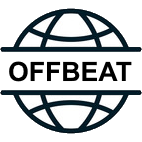Grandma got run over by a dragon?
TheTechnician27
- 20 Posts
- 428 Comments

 26·2 days ago
26·2 days agoI’m also going to note that a ton of slaughterhouse workers are either undocumented or are the sorts of legal first-generation Latino immigrants Trump would still want to illegally deport. Even as a vegan who wants to see this industry die I can see how fucking disastrous that kind of shock would be for food prices. Even the change in public perception would be massive since it seems like the price of meat is one of the most significant barometers most meat-eaters use for how expensive groceries are.

 71·3 days ago
71·3 days agoA vastly better experience for less money? Never! /s

 3·3 days ago
3·3 days agoThank you. I still have no idea why people make the ridiculous argument of “Well what will we do with all the living ones?” It’s either what you said, or they think there’s going to be an entire multi-billion-dollar industry supporting tens of thousands of cows for each individual of the last remaining non-vegans. It’s so disingenuous that they’ve either never thought it through or actually just don’t care.
It’s frustrating how arguments supporting the overwhelming status quo don’t need to hold up to scrutiny at all. Then the ones speaking out against it have mountains of credible data and airtight logical arguments that can just be dismissed out-of-hand by complete, nonsensical bullshit, and the general public will lap it up.

 1·4 days ago
1·4 days agoOh, that’s super cool: you’ve actually made a claim that can be addressed. So now substantiate it. You say “the studies”, but ostensibly there are 1530 of them. Out of the 1530, how many say this? Because I imagine you’re saying you’ve at least checked some subset of them. Can you point to even a single specific one which Poore & Nemecek used in their analysis? More importantly, can you point to even a single one of those authors (or hell, anyone else) who issued any sort of commentary calling this paper out for this alleged “bad science”?
After all, the scientific process isn’t just being extremely credentialed; it isn’t just meta-analyzing over 1500 papers; it isn’t just standing up to the scrutiny of peer review prior to publication: it’s knowing that at any time, someone else can read your paper, say “that’s wrong/dubious, actually”, demonstrate that objectively, and then publish that information. This is an extremely economically important topic with an industry who would be champing at the bit to publish a paper debunking this one, the work has been discussed in international news, and it’s published in one of the most prestigious academic journals, so clearly it should have undergone some level of public scrutiny.
Clearly you as someone with (obviously) literally no background in this field can point out such an egregious error, so why hasn’t any actual credible scientist? Or better yet, why haven’t you compiled and submitted this information for publication?

 1111·4 days ago
1111·4 days agoShhh, don’t call it “haptic feedback” or they might make them flat, unmoving buttons that have a vibration motor behind them.

 1·4 days ago
1·4 days agoRemoved by mod

 1·4 days ago
1·4 days agoOkay, so do what I asked. If you’ve said something substantive, thought-out, and falsifiable in the past, it should be trivial for you to copy-paste that here.

 1·4 days ago
1·4 days agoEvery time you show up to talk about this paper, you just say it “misuses LCA” and then never elaborate because you don’t actually understand anything about the paper. See where the authors discuss their methodology? Please go there and point out how exactly it “misuses LCA”. Make a pointed, falsifiable criticism of the paper, please.

 1·4 days ago
1·4 days agoYou understand that the sham papers aren’t uniformly distributed over journals, right? You understand that 8000 of them belonged to a single publisher and that thousands of fully legitimate papers are published every day? And that Science is – again – one of the most rigorous academic journals in the world? Just blanket denying science that you pretend to understand isn’t going to help your floundering credibility.

 1·4 days ago
1·4 days agoAlmond milk has been around since at least the 13th century. Do you take issue with almond milk calling itself “milk”, and if so, do you need a refresher on arithmetic?

 2·4 days ago
2·4 days agoTo add to this, recipes for plant-milk (almond specifically) can be found dating back to the 13th century. n3m37h is just willfully historically illiterate and hilariously reactionary.

 1·4 days ago
1·4 days agoPretty sure those studies are bullshit
Gee, who am I to trust? A peer-reviewed paper you’ve never read meta-analyzing 1530 studies in one of the most rigorous scientific journals in the world whose methodology section directly contradicts the ignorant horseshit you’re saying and which is written by 1) Dr. Joseph Poore, the director of the University of Oxford’s food sustainability program and 2) Dr. Tomas Nemecek, an expert on agroecology and life cycle assessments from the Zurich University of Applied Sciences… or the random Internet person who thinks it’s spelled “mardrine” – a word I probably learned to spell in fourth grade?
The rest of your comment is just textbook whataboutism, and I’d call you deeply intellectually dishonest, but I’m not sure at this point that you’re capable of any sort of intellectualism – honest or otherwise.

 4·4 days ago
4·4 days agoThis is why I only hire Shelly de Killer.

 51·4 days ago
51·4 days agoAnd what is wrong with dairy?
Besides being catastrophic for the environment, a fucking shitton, actually. Maybe if you actually cared about cows’ quality of life, you wouldn’t selectively breed them to overproduce milk so that you’re “forced” to milk them, you wouldn’t take their child away from them that would otherwise drink the milk, and you wouldn’t forcibly impregnate them on a rape rack in order to get them to produce milk. (Also, it’s “heifer”, not “heffer”, just like it’s “margarine”, not “mardrine”.)

 33·4 days ago
33·4 days agoWrong about what? It’s objectively not spelled “mardrine”, and boomerism is being used here colloquially as an attitude, not a generation.

 47·4 days ago
47·4 days agotrying to be things they aren’t
lmao okay boomer (margarine* btw)

 216·4 days ago
216·4 days agoA lot of things, actually. Milk is so clearly and consistently marked as an allergen that I’ll often as a vegan just check the allergens if I don’t have any reason to suspect the use of meat products, meat byproducts, honey, or non-allergenic dairy ingredients.
I would probably still do a double-take and check the ingredients here, but with the movement to plant-based alternatives, you never know if someone who treats this the same way I do as basically a gold standard (because that’s what it’s supposed to be) will simply take it at face value. It’s also plausible that someone without strong English literacy but with such an allergy would rely solely on the basic allergen label rather than trying to parse more complicated English words.
The reason it has to be strictly enforced like this too is that if you justify this as “well everyone knows
it’s Buttersbutter, so it doesn’t really need a label”, then it’s not as trustworthy and therefore efficient to those who need it, and it risks drawing a line where not everyone is on the same page.

 171·5 days ago
171·5 days agoWhen the ICC next probes war crimes claims against the chief sexual misconduct prosecutor:


















$10 says most
death penaltystate-sanctioned murder proponents would’ve proposed before 2022 (or even just before this verdict) that she was a clear-cut example of why it’s necessary because what kind of monster would definitely 100% verifiably beat their child to death? Fucking repugnant.